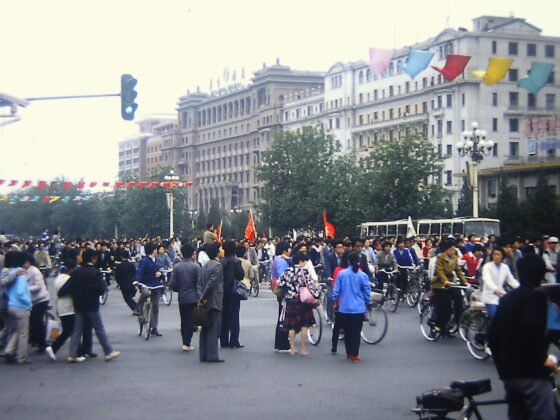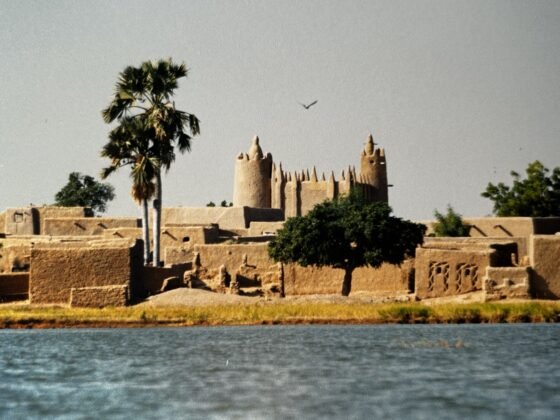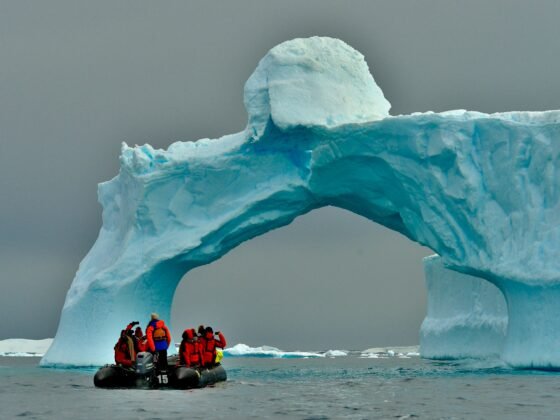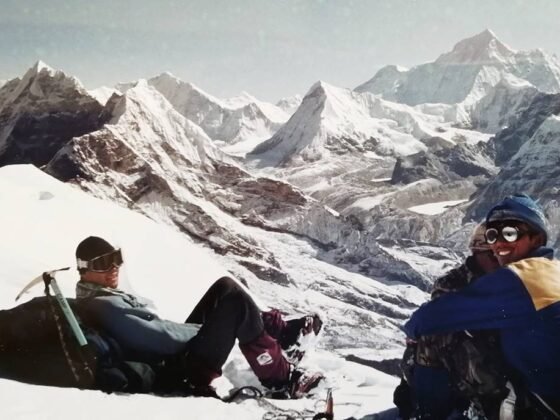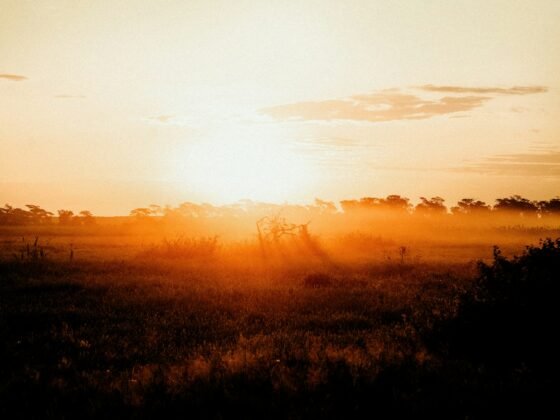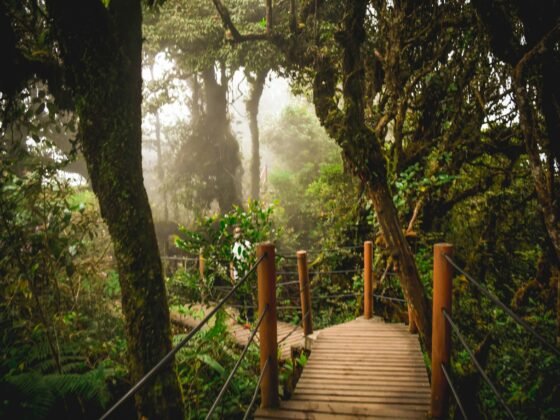by Jamie van Eesteren
Shortlisted for the 2024 PureTravel Writing Competition
The bonfire blazed brightly beneath the Milky Way, which stretched like a celestial river flowing across the clear night sky—an endless, shimmering path of stars. The great steppe spread out in all directions around us. Empty and devoid of light, amplifying the vastness of the sky above. In that immense darkness, we all felt incredibly small, as if we could be snuffed out at any moment by the whims of nature should the fire flicker and die. Even the full moon, hanging low on the horizon, did nothing to dim the brilliance of the galaxy surrounding it. The fire’s light paled in comparison to the vastness of the heavens above.
We raised our cups of vodka, toasting as if in prayer, offering thanks for being allowed a place in the beauty of the night. The bottle bore the face of the great Khan, revered by the Mongols above all others. His stern gaze was occasionally illuminated by the flickering light of the fire. Our guides, Mogi and Tombi, broke into song, their rasping, hauntingly beautiful voices filling the air. There was no need for instruments—the crackle of the fire and the melody of running water from the nearby stream provided all the accompaniment they required. They sang with eyes closed, swaying gently, seated cross-legged on the open steppe. Their voices wove together, creating a harmony that seemed to transcend time. Though we could not understand the words, the song spoke of something ancient—a world long past but brought back to life in this place and moment.
This simple joy of sitting around a fire beneath the stars, laughing and singing, must have been an everyday experience for those who lived here long ago. For millennia, people gathered on these plains, living by nature’s rhythm, gazing at the same stars we now marvelled at. Life then was undoubtedly harder and, for most, far shorter than the lives we know today. The harsh environment and endless work to survive left little room for rest. And yet, one can’t help but feel that they almost certainly felt more connected to nature than we do.
One could be forgiven for thinking that we live on a different planet than our ancestors—one where we have supplanted the gods, and nature means nothing in the world of metal and plastic we have built. A world where we can not see the stars. But in that place and time, guided by that beautiful song and the light of the night sky, it was possible to see that the old world still exists. A realm where the moods of the sky father and earth mother were revered, as they meant life or death. One wonders how long they will remain content while we ignore them.
I wished the song would never end, though, of course, they always do. When it was over, a silence hung in the air before it was broken by our applause, followed by the clink of cups and the warm burn of more vodka. Mogi and Tombi, drunk on our appreciation as much as the drink, stood and exchanged glances and whispers that spoke of mischief. They wanted to show us more of their world.
After another toast, they began rounding up our horses, which had been grazing peacefully nearby. With a feeling of building elation we mounted them bareback and rode out into the open plains beneath the stars. The cool night air rushed past us as we galloped across the steppe, the faint white river running across the stars above mirrored in the stream flowing below. Mogi and Tombi whooped and cheered, while I threw out my arms and looked up at the sky overhead, laughing as we rode. We all felt free that night. Yet now, as I reflect on that night, I can’t shake the feeling that the ability to drunkenly sing, ride, and revere the natural world around us may be slipping through our fingers.
Photo by Usukhbayar Gankhuyag on Unsplash




